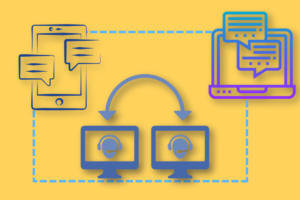The effects of virtual exchanges on oral skills and motivation
 The present study aims to assess the benefits of participating in a virtual language exchange (VE) for practicing oral skills with native speakers by measuring learners’ motivation to learn the language, communicate, and collaborate. The oral language development of advanced learners of English at a Spanish university was compared with a control group from the same class who did not participate in the VE. This study’s motivation was two-fold: 1) pilot testing the VE project before making it mainstream and offering it as an integral part of this university’s language courses, and 2) testing whether that increased advanced learners’ purpose and motivation to communicate with others in the target language. Data were gathered from learners’ oral grades and two questionnaires to report on the participants’ experiences and examine the VEs’ potential to support the development of oral skills. Quantitative analyses of learners’ oral grades and questionnaires revealed that the VE contributed to boosting their oral skills, increased their motivation to learn the foreign language, and added a sense of purpose to collaborate with other learners while carrying out communicative tasks. Findings also suggest that improvement in oral skills was more noticeable among lower-proficiency learners taking part in the VE.
The present study aims to assess the benefits of participating in a virtual language exchange (VE) for practicing oral skills with native speakers by measuring learners’ motivation to learn the language, communicate, and collaborate. The oral language development of advanced learners of English at a Spanish university was compared with a control group from the same class who did not participate in the VE. This study’s motivation was two-fold: 1) pilot testing the VE project before making it mainstream and offering it as an integral part of this university’s language courses, and 2) testing whether that increased advanced learners’ purpose and motivation to communicate with others in the target language. Data were gathered from learners’ oral grades and two questionnaires to report on the participants’ experiences and examine the VEs’ potential to support the development of oral skills. Quantitative analyses of learners’ oral grades and questionnaires revealed that the VE contributed to boosting their oral skills, increased their motivation to learn the foreign language, and added a sense of purpose to collaborate with other learners while carrying out communicative tasks. Findings also suggest that improvement in oral skills was more noticeable among lower-proficiency learners taking part in the VE.







